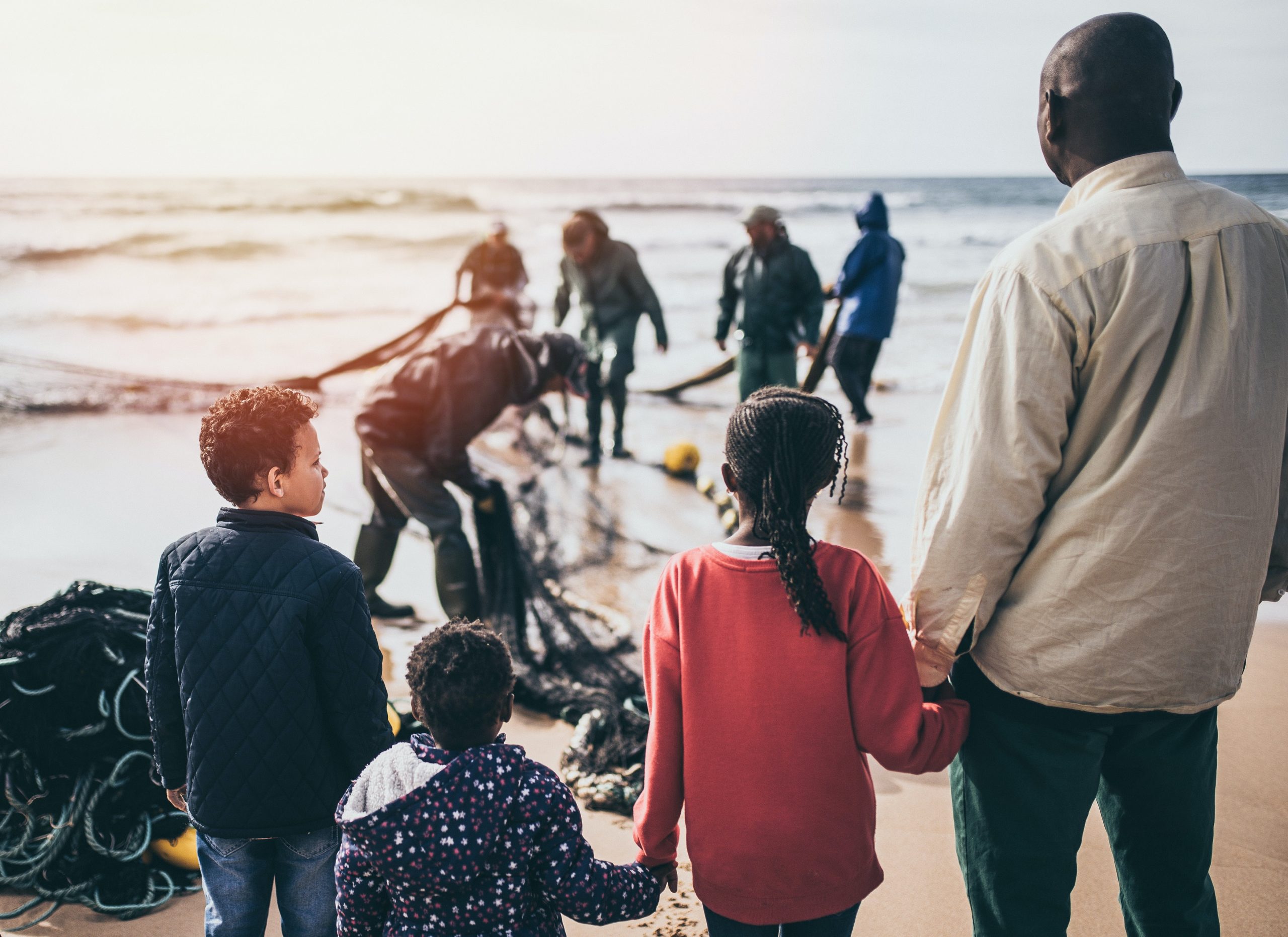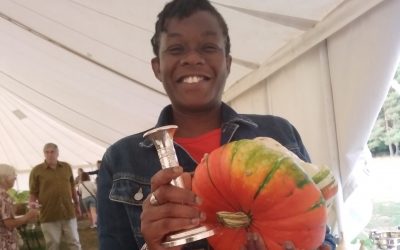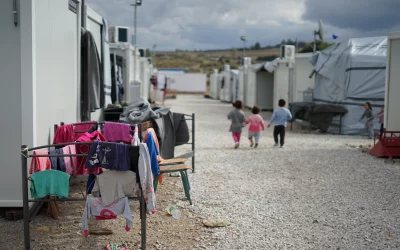Photo by Eric Masur
Migrant statistics might be highly topical, but consideration is seldom given to the people behind those numbers. An image of a migrant child is guaranteed clickbait, but what about the trauma endured by the child. Read the courageous tales of just some of those children.
__________________________________________________________
When many reflect on their childhood, it is of days filled with innocence, laughter and positive experiences, and few worries. As one of the Hear Our Stories authors wrote,
“You are nine years old. Your biggest problems are where you want to put your favourite teddy and which Barbie movie to watch after supper.”
Erin, Changes
Unfortunately, not all children will have the same memories. The World Health Organisation estimated in 2022 globally, up to one billion children aged 2–17 years experienced physical, sexual, or emotional violence or neglect in that past year. And despite such horrific statistics some still question if children really need to seek asylum. In response, The Refugee Council reports that worldwide in 2020, 21,000 children applied for asylum, arriving in the country of refuge without a parent or guardian. And up to September 2022, 5,152 unaccompanied minors applied for asylum in the UK.
And while the circumstances of their arrival might differ, the UK is also home to many migrant children whose parents or guardians came to the UK for work and a better way of life.
All these children have one thing in common: a lack of control over decisions made by others – decisions to leave their home, family, and friends behind. Migrating to a new country, whether forced or by choice, is a challenging experience for all involved. However, it is particularly traumatic for children still developing emotionally and mentally. And unfortunately, many children continue to experience abuse even after arriving in the UK. The Guardian reported on the shameful treatment of these most vulnerable migrants. This report merits deeper investigation, but it highlighted how ongoing abuse of their childhood continues through language barriers, poor social support, economic strain, discrimination, and the prolonged application processes in the UK. Some of the writings in Hear Our Stories, reflect those situations.
Daniel Habte wrote a heart-breaking poem, describing how, as a child, he made the treacherous journey from Eritrea to England. His words depict the cruelty, abuse, and horrors of fleeing his home, afraid to tell his family as he knew how much it would hurt them. However, he knew his country’s “hard, cruel leaders” would determine his future, and his only choice was to flee his home. A fear justified, as in 2022, Eritrea crossed the threshold of 501,000 refugees; nearly 14% of its population displaced due to violence and political instability. Daniel’s poem gives an unfiltered view of the dangers and misery experienced by refugees on their journey. But the last few lines reveal the inner child pinning for his family, especially his mother.
“Life is challenging, knowing that I still have family in Eritrea and that I haven’t seen my mum in a long time.”
Daniel Hatbe, My Eritrea
Another author, Narjes, inspired by Banksy’s artwork, tapped into his use of children in his street art, overlapping sorrow with love and dreams. Her poetry is emotional, and her use of descriptive language represents the true horror faced by far too many refugee children.
“How our little hands could just cut our own skin, not a barbed wire? The trees another side of the border calling us, with their ripe apples waving to us. Oh, again apples, apple tree, even now, even for children, even in war, apples seduced us again.”
Narjes Azimi, Banksy
And yet, despite a lack of control over their lives and the hardships they faced, many remain resilient and determined. The young authors in Hear Our Stories reflect how they process uncertainty and suffering, retaining positivity and encouragement for others.
It can be difficult for anyone who has not had to apply for permission to remain in the UK to understand the challenges of becoming “granted”. The process is complicated, and with a growing backlog of applications, the Home Office can take months or even years to make a decision that profoundly affects lives. A frustrating and disruptive situation for adults but the lack of belonging or being settled is traumatic for a child. Chelsey shares the disruptive life migrants’ families endure as they await legal acceptance. She describes her once-perfect childhood,
When I was a young child, everything seemed so perfect. I was in my own bubble, life seemed perfect.
She then tells us of what she calls “a bumpy road,” as for five years, they were moved from home to home, location to location, and school to school. Multiple moves can be challenging for the young, affecting their sense of belonging, leading to a lack of confidence and self-esteem. And yet, minors who have already left their home country often face numerous moves around the UK during the lengthy application process. Chelsey bravely calls out the authorities who at times, place young children in unsuitable places,
I lived in various accommodations that ranged from being okay to being absolutely rubbish!
…so much for wanting children to grow up in “safe” and “nurturing” places.
And yet, despite all the disruption in her young life, Chelsey remains positive and inspiring. Her words of encouragement to children in similar situations demonstrate a positivity many adults would envy, and which should shame the authorities, who sometimes forget they are dealing with people and not statistics.
“I hope my story inspires lots of children who are in the same situation as I was. You are stronger than you know!”
Chelsey George, My Life Story
Erin, who emigrated when only nine years of age, wrote about the differences between life at home and in this new country. And even as she recalls some the more dangerous aspects of life in South Africa, her love for her country remains strong as she tells herself,
“Although you have moved, it will always be your home. The mountains of memories you’ve made there will never fade away.
Her story reveals the negative impact leaving your home country can have on children.
You have always been friendly and never been afraid to put yourself out there, but after moving country and school, that sense of confidence is less than it previously was.
Erin, Changes
Abida, came to the UK in the 1960s, even now almost sixty years later, vividly recalled her bewilderment at being brought to a country that seemed only grey,
“I must have been bad, to make the world lose its colour.
Her lack of English enhanced her sense of loneliness and isolation at being so far from her beloved family. She, too though, fought to regain her spirit and her confidence, saying,
“A year later, I found my voice again”.
Abida, The Journey (1964)
Between 1938 and 1939, Britain welcomed 10,000 children rescued from Nazi persecution. Lord Alf Dubs, who wrote the forward for Hear Our Stories, was one of those British-led Kindertransport children. Reliving his own experiences, he reminds us.
“While many survive the terrible experience that led them to flee…for some, just surviving has become their new challenge.
It is hard to relate to such challenges, if we have never been displaced or forced, for whatever reason, to leave our home country.
The feeling of being an outsider cannot be understood until it is felt.
Sisi Wang, Please Question your Misconceptions
However, the authors, the publisher, Victorina Press and TogetherintheUK hope that by reading beautifully crafted stories and poems in the Hear Our Stories anthology, you will have a greater understanding of the challenges migrants and refugees face and open your hearts to be kind and welcoming.
Order your copy of Hear Our Stories for only £12 from Support Us.







